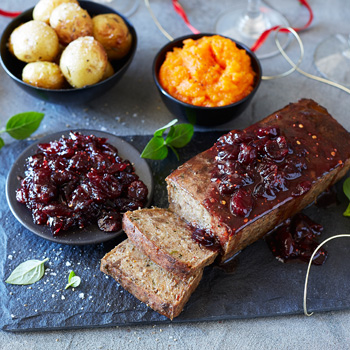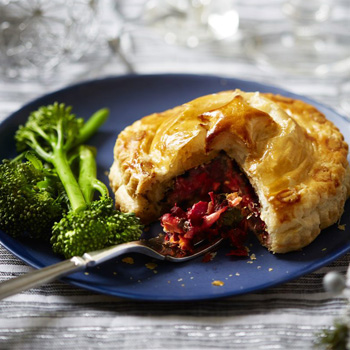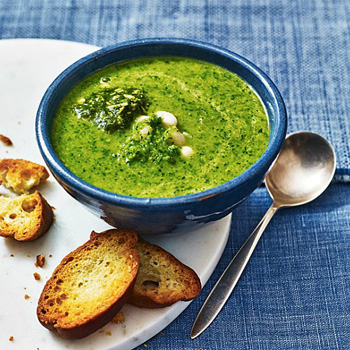With everyone exploring different eating plan options, plant-based diets are becoming more popular.
A plant-based diet is an eating plan based on eating whole plant-based food. This differs from a vegan diet as it can include a small amount of animal products such as meat and fish, or dairy products. This is known a flexitarian diet.
ALSO SEE: Should you go vegan?
We asked Tammy Fry of Fry’s Family Foods Co. about the benefits and myths surrounding a plant-based diet.
Tammy is the director of Meat Free Mondays AUS and South Africa where she promotes a flexitarian lifestyle as one of the major solutions to unsustainable food choices, global warming and awareness of the cruelty we see in the industrial production of animals in factory farms
This is what she had to say…
What sort of foods can you eat on a plant-based diet?
You can enjoy a wide variety of whole plant-based foods, including fruit, vegetables, grains and ancient grains such as amaranth and quinoa. You can also eat nuts and seeds, pulses and beans.
Meat alternatives contain all the nutrition you need without the nasties and are quick and easy to prepare. They also give you the opportunity to eat all your old meat favourites, such as stir fries, lasagnes, burgers, Sunday roasts, or a braai with friends.
Where do you get your protein on a plant-based diet?
Most of Fry’s ranges of products have more protein than the meat equivalent. If you choose to follow a whole foods diet, then a varied diet will ensure you get all the protein you need. For example, pasta and potatoes won’t cut it – you must eat a wide variety of fruit, vegetables, grains and legumes.
What are common misconceptions around plant-based diets and what does it actually involve?
As a lifelong vegetarian and having grown up with Fry’s, I’ve heard many myths and misconceptions surrounding a plant-based diet. I’m always happy to provide the facts. The most common misconceptions I’ve found are:
1. “Don’t vegans need to take supplements?”
A plant-based diet contains all the nutrients needed to achieve optimal health when a variety of ingredients such as legumes, fruit, vegetables, seeds and fortified foods are consumed regularly.
Fortified foods are necessary for both vegans and non-vegans. A good example is B12 vitamin, which used to be produced naturally in soil, but due to over-farming, the quality of the soil has decreased, including the presence of this essential vitamin. Manufacturers now add B12 to foods like cereals and non-dairy milks, as well as cattle feed.
2. “Soy messes up my hormones!”
According to Dr Michael Greger, soybeans naturally contain a class of phytoestrogens called isoflavones. When people hear the word ‘estrogen’ in the word ‘phytoestrogens’, they assume soy has estrogen-like effects, from causing breast development in men to disrupting menstrual cycles in women.
He explains that estrogen has positive effects on some tissues and potentially negative effects on others. Soy phytoestrogen is classified as a ‘selective estrogen receptor modulator,’ meaning the body experiences both pro-estrogenic effects in areas where estrogen is beneficial and anti-estrogenic effects where estrogen causes harm (1).
For example, studies show that soy consumption lowers breast, and other types of cancer risk (an anti-estrogenic effect), but can also help reduce menopausal hot-flash symptoms (a pro-estrogenic effect). So, as Dr Greger explains, you may be able to enjoy the best of both worlds by eating soy
3. “A vegan diet is expensive.”
When you are next at the shops, switch out your steak, ham, bacon and chicken for chickpeas and lentils and you’ll see your monthly food bill shrink.
Staples like grains, potatoes, bananas and beans are some of the cheapest (and healthiest) things you can buy in the supermarket.
4. “One person can’t make a difference.”
Think Isaac Newton, Leonardo da Vinci, or Nelson Mandela. Total dedication by one person to his or her chosen cause can make a huge difference.
The collective action of individuals has the power to make global change. If many people decide to stop eating meat, the markets will order less, and the amount of those products supplied will decrease.
5. “Okay, but you only eat grass and cardboard, and I love my tasty food!”
This is a myth that almost all vegans are very happy to challenge. From hearty stews to pizza, pasta and burgers, vegans love sharing their passion for food.
Initially creating food you’ve never made before might seem daunting, but you will be amazed at how quickly you discover new flavours and recipes.
Take a look at these plant-based diet recipes:
Vegan pies with chickpea and beetroot:
Meat-free country roast:

Super-green soup with beans
References:



